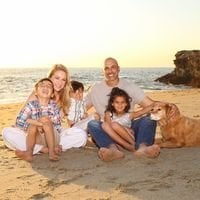Search the Community
Showing results for 'renew bariatrics'.
Found 158 results
-
Well, how did you do? One of the biggest "foodie" holidays of the year just passed us by, which can be a MAJOR trigger for those who struggle with food addiction. If you're shaking your head in regret, please read on below to learn how to quickly get back on track. Well, how did you do? One of the biggest "foodie" holidays of the year just passed us by, which can be a MAJOR trigger for those who struggle with food addiction. If you're one of the lucky few, who is able to look back over the holiday proudly, and say "there is nothing I would have changed," then congratulations! I am genuinely interested in reading your comments below about what worked for you; did you remove yourself from the triggering environments, distract yourself by playing a card game or talking with another family member trying to do the same, did you re-read your bariatric surgery "why's," to reinforce your motivation that day, or was there something else that worked to keep you on track? "It's not how we fall. It's how we get back up again." - Patrick Ness For those of you who are shaking your head in regret this morning, you are not alone. There are thousands of other WLS patients who struggled to stay on track over the holidays. The biggest struggle I've hear throughout the years is that the motivation is dented, diluted, or zapped when one first gets off track from their plan. Enter code CYBERSALE to get my Full From Within Psychological Tools for WLS patients course 50% off today only. There is a lot of psychology behind this. Part of the magic in resolutions is their novelty: an implicit contract within the self that says "this will be unlike anything I've ever done before." When we relapse (or "slip" as I prefer to call it), the self goes "oh wait a minute, I know how this goes, maybe this is no different than before, who am I to think I could do this, I have no willpower, etc., etc., etc." So the idea is to find a new plan. It can be bits and bobs of the one you had before, but it needs to have that new car smell again to have longevity. I am including an excerpt of an earlier article I wrote about how to do just that: What do we do when we fall from grace? The research on relapse (with any addiction; food, drugs, alcohol) is that recidivism is the rule not the exception. So why do we get so down on ourselves when we fall short of our goals? Why is it so hard to get back on the horse with the same vigor we had when we started? And how do we give ourselves a renewed sense of hope and motivation for change once we've fallen? “The secret of change is to focus all of your energy not on fighting the old, but on building the new.” - Socrates Everyone does well out of the gates. We all impress ourselves when we start, what we believe to be, a new lifestyle change. However, "out of the gates," can mean different things for different people; for some it is two months, for others (usually depending on how strong the addiction or habit is) it can be two minutes. But what do we do when we fall from grace? The research on relapse (with any addiction; food, drugs, alcohol) is that recidivism is the rule not the exception. So why do we get so down on ourselves when we fall short of our goals? Why is it so hard to get back on the horse with the same vigor we had when we started? And how do we give ourselves a renewed sense of hope and motivation for change once we've fallen? One magical ingredient in the secret sauce (and one of many concepts I talk about in my book and my wls courses) that is lifestyle change is the novelty effect. The new plan to quit something or change a bad habit is something unlike we have ever done before, so we hope that we can achieve something we have never done before. The problem is that the moment we slip, that novelty loses its magic - and each time we start over, it loses its power to give us hope. So the solution is to cultivate more novelty. Our ability to continually grow and change is largely limited by our creativity. The more creative we become, the easier it is to take a different approach to change. To open a window when life seems to shut the door. In other words- what I am telling you, is that the only secret to long term weight loss maintenance is the knowledge that there isn't only one secret. There is no ONE diet that will forever change someone. Eventually people get tired of eating bacon and eggs every meal on Atkins, or grapefruit, or cabbage soup- but the thread they all share is their novelty. This is why all of them can work initially. Even as powerful as weight loss surgery is- people still find that they start to plateau or even gain the weight back if they aren't simultaneously addressing the behavioral and psychological factors that got them there in the first place. They too, must also continuously be creative about renewing one self throughout their lifetime. So the following is for all of you who are struggling today. Those that feel they have lost their way and perhaps feel disenchanted or disappointed. Below is a recovery "map" I created a long time ago for my clients, some struggling with substance abuse, others with food. It all works the same. Print it out, or copy and paste it in the notes section of your phone and take 20 minutes to fill it out with the things that are personally meaningful for you. This is not THE answer to long term recovery from addiction, but it is a fresh approach for many who feel stale at the moment: Baptism - Some ceremony to signal a renewed sense of hope and a fresh start. One client trying to recover from substance abuse, buried all of his wine and liquor bottles in his yard. Another client had a "garbage party" with her kiddos, and they loved smashing all the processed foods they had in their pantry and throwing them in the trash. Associations/triggers list all of the things that get you into trouble (being at a bbq, wanting to Celebrate something, holidays, 7-10pm at night, date night, etc) Coping Skills (what gets you through the crave waves) These are the behaviors that you do INSTEAD of the addictive behavior. Extra credit if you are able to make a coping skill for each trigger listed above. Enter code CYBERSALE to get my Full From Within Psychological Tools for WLS patients course 50% off today only. Higher Desires/Vision of Self when you let go of your attachment to food and all the self loathing, mental, and physical heaviness it brings- what are you freeing your life up for? will you write a book? will you do more outdoor activities with your kids? do you want to resume an activity you once loved as a child? Is there a role model that inspires you that has done what you want to do? Cons Why are you doing this in the first place? These are the things that are hard to keep in mind when our reptilian mid brain (see last article) is at the wheel. What is personally meaningful? Does it age you? Does it make you feel out of control? Do you dread going on airplanes because you know you'll need an extender? does it prevent you from going to amusement parks with your kiddos? Spirituality (religion gets us into heaven, spirituality gets us out of hell) All addiction is what disconnects us from our deeper self and edges us further and further away from God (or whatever you like to call it) and our deeper spirituality. Spirituality is what allows us to move into the unknown, be comfortable with discomfort, and have faith that everything will be ok. It can include a gratitude practice, volunteering, play, aligning one self with nature, connecting with a spiritual e newsletter (mind body green, daily om, etc), generosity, etc. Daily Recovery Ritual (symbolic gesture to self every day that we are consciously devoting time to our recovery) What are the things you can do daily to symbolize to yourself that today is a new day? Keep it realistic or you won't do it. Vitamins, meditation, lemon Water, supplements, self care, reaching out to a loved one, exercise, etc. Reward System What will you do for yourself if there is a certain period of time reached where you meet your goals? Will you get a massage at the end of every month? Will you plan a vacation after three months of solid goal hitting? Will you reward yourself with one day per week of going to the movies in the middle of the day and playing hooky if you're on the straight and narrow for five days? Strategy This is your "what." What are you doing daily to ensure that you are in alignment with your goals? Are you reading something fresh all the time? Do you make a timeline of your addiction and how it has affected your life? Do you go to local support meetings each week? Do you keep in touch with an online community? Do you make sure to give yourself small breaks while with the kids every day? Do you have a self care space set up in your house? Do you talk to a partner about how to change behaviors of theirs that might be hindering your efforts? can they get a mini fridge? Do you do acupuncture to balance your chi? Do you do yoga to manage your depression? Do you find a therapist? Recovery Resources (try to hit one each morning) what resources are in your pocket when you are feeling weak? bariatricpal.com? WLS journeys on Instagram? The Fix, Reddit, unique blogs documenting their weight loss journey, wls and vsg searches on Pinterest, etc. Good luck on your fresh start! Need extra motivation? Use code "CYBERSALE" to get my course: Full From Within Ultimate Psychological Tools for WLS patients half off today only, or try my FFW mini for free.
-


Protein Powder suggestions PLEASE HELP
Frustr8 replied to Jakesoldlady's topic in Gastric Bypass Surgery Forums
well I am out sitting on my side porch. Ordered. some items from Bariatric Pal store Monday. Should have been delivered Wednesday, got a text from them stating it was in my town and the USPS postal person would be bringing it. Oh Goody Goody, I think, then I get a text stating they needed a signature and I wasn't home. WRONG' the front porch, where my mailbox is, right next to my bedroom window, would have heard them, and although I have 2 more porches my house is small enough I can hear knocks there also. So tried to track this thing down, BPS stated We sent it, why didn't You want it? Oh I do want it, please help me find where it is. Called the number off of Google, national number for USPS, says you have reached the Customer Service # no live person , went into 3 minute dissertation about the Carolinas🌲🌴 and how water-logged the Post Offices are there. Hey, I am sorry for them, been praying for them ever since it first happened but hardly responsive to my problem. Never a sign of a live person! So dug around the house and found an old phone book, which I hadn't recycled yet. Glory Be, a local phone number for the postmaster! Started calling, and kept on until I had to go to a doctor's appointment. Have a theory on this one, yes they have a number, either shut it off or leave it off the hook, only use it to call out, don't want incoming. Never got anything but busy signal. So here I sit, on my side step, attractively clad in an Ohio State sweatshirt and a long tie dyed skirt, remember I'm 3 weeks post surgery, Levi 501s and I have not renewed our friendship, zippers on my sore site scars , dont think so. Somewhere between 9AM and 10 AM they should be here. And it's maybe 55 degrees, if I get sick or develop bladder spasms, can I sue the government? No? Well it was a nice thought in passing!💇 FYI the stuff from Bariatric Pal store is very nice, been enjoying the small amounts I ordered before, this is a BIGGER order.My only gripe, it is horrid getting the order placed, maybe because I am older and crabbier than most, but taking a hour to complete it? Somethin' wrong there, Lucy,Ricardo! So if I don't freeze to death maybe the box and I will get together?😦🎁😋 -


I did a bad bad thing.
Madam Reverie replied to natalie_christin's topic in POST-Operation Weight Loss Surgery Q&A
Every post-op diet is different. I was told by my Nutritionist 'clear fluids only for the first week-two weeks. I'll be sending you a post operative diet book shortly'. This never arrived and I received it the morning after my surgery. Which, when it did arrive, stated that in weeks 1-2, I could 'eat' (amongst the other usual suspects of fresh air and water): Creamed soups, Yoghurt, Protein shakes. As it stood and on morning one, the hospital delivered me natural yoghurt and jello (or jelly as we like to call it in the UK) for breakfast. So much for clear fluids for 1-2 weeks then?! Anyway and that aside. Because I was legitimately provided these things on day one, I have continued along that path, whilst consuming bottles of clear Isopure Zero to get my protein in. I find them rather boring to taste (we only get three flavours in the UK), but it's easy on the stomach and makes me feel like a good student for glugging my way through them. Pain meds are hideous and always require something to line the stomach first before ingestion to prevent all the usual nasties which can happen. How in gods name you were supposed to manage that on clear fluids and without any form of PPI or stomach lining protection, I don't know? As for eating the turkey? This is the way I see it. You're on your own and you haven't been guided particularly well. Although with reference to the pain meds on an empty stomach - you probably new this would be an issue pre-op and maybe should have asked some more probing questions for a definitive position? After all, most healthcare systems, irrespective of which nation it occurs in, couldn't organise a piss-up in a brewery, so it falls to the patient to be annoyingly 'on top of it'. Which, after paying exorbitant amounts of money no one feels they should have to do, but however, they invariably end up doing, because the administrative coordination systems in these institutions are, for want of a better word, so crap, you need to end up effectively taking charge of your own healthcare. <minor rant over> So, you had a couple of slices of mashed up turkey in some broth and you chewed it like an obsessive?!?!??!! Did the world stop turning? No. Could you have hurt yourself? Yes. Will you do it again? Course not! (well, you might, if that's your food of choice in the mushie stage!). However, everyone can fully appreciate why you did it. Hell, if I'd had such a lack of medical clarity, cohesion and guidance in how I should approach things, I'd be making my own executive decisions, too! The way I see it; you spun the barrel in a Russian Roulette game of 'oh my god, I need protein, oh my god how am I going to get it? Maybe I should just eat some meat directly?' kind of thing. After one week of nothing but clear liquids and a bucket load of pain meds - no person, however well 'schooled' would be making the most cogent of decisions. That aside, you were lucky, you didn't sweat out and black out and vomit and are not (hopefully) experiencing abdominal pain, heart palpitations and all the other nasties that can happen. You spun the barrel and nothing was thankfully in the chamber. Consider one of your 9 bariatric lives lost and carry on with renewed vigor and determination! You can do it! As for me and to illustrate we're all human; I strayed waaaaay off the path last night. I had four teaspoons of mashed potato drowned in baked bean juice so it was like, well, soup. It tasted amazing and before I get a rollicking for the fact I'd eaten a carb in week one - I'd got permission from my bariatric nurse first - so there! <insert tongue poke out here> I often find that a lot of things on this site, particularly nuances, when posted in text, are lost in translation. This leaves the doors WIDE open to misinterpretation and people taking conversations off into completely different realms and tangents; making reference to things which aren't immediately relevant, you feel are not immediately warranted, or even on topic. Although it is annoying and you're left thinking 'WTF?!' Most of the time, it is well intentioned. Sift through the 'blah' (which is the majority of my posts) and look for the 'ahh - eureka!'. Either way and on this site, it's usually either the 'carrot' or the 'stick'. All valid, if you know how to detach your emotions and look at the information proffered critically and objectively. You'll be great and you'll do great. Put this behind you, grasp your own medical coordination by the balls and go get 'em, tiger! x -
Hi all, I am new to this group but looking forward to participating. Here's my story in a nutshell: I had a Realize band placed in February of 2009. My starting weight was 268. The band was fantastic and I lost weight steadily, with the exception of a few months when I realized how easy cookies were to eat. In December of 2010, I hit the 100 pounds lost mark, I also found out I was pregnant that same week. At about 4 weeks pregnant I had a really nasty 3 day stomach flu. A few days after recovering from that, I started throwing up again. I could keep food down for a few hours, but it was all coming back up. I lost another 15 pounds in 2 weeks. I thought it was just severe morning sickness, even though in 5 previous pregnancies I'd never had morning sickness. I saw my Ob who told me to immediately get my band unfilled and if I was still throwing up the next day he'd have to admit me into the hospital. I got a complete unfill and immediately felt better, but with no restriction and absolutely no mental/physical/spiritual preparedness for no restriction, my love affair with all things bread and pastry renewed like we were never apart. I gained 40 pounds in the first 4 months of my pregnancy. I managed to gain back a little control, but ended up gaining about 60 pounds before I had my daughter in August of 2011. The weight gain took a great emotional toll on me, but I just knew that 6 weeks postpartum I'd get a fill and be right back on track... You know where this is going, right? In October of 2011 I got my band refilled. Pre-pregnancy, my fill level was at 7.2cc in an 11 cc band. We filled it to 3.5 cc and 3 weeks later filled it to 5 cc. I had very little restriction and it just didn't seem right. I'd also started getting heartburn. I went back a few weeks later and we filled it to 5.5. That lasted 24 hours, I had to go back in for an unfill and we went down to 5.2 so I could get water down. I still didn't have much restriction, but I did have terrible heartburn and vomiting in the middle of the night. I lived with this for a few months until I couldn't stand it and went back in and had .5 cc removed. This made the heartburn manageable with daily meds and tums always at hand, but there was no restriction. I could eat all the bread, pasta, rice that I wanted. I knew I had a slip, but didn't have insurance to cover bariatrics, so I lived with it. I tried eating less, exercise, weight watchers, even a juice fast but I've gained 20 more pounds on top of the baby weight. Fast forward to now and I finally have insurance to cover bariatrics. I went in a few weeks ago and had my upper GI. It showed a slip above the band, virtually my entire stomach is above the band, which is why there is no restriction felt, but the band was so tight that flow into the rest of my digestive tract was severely restricted. Food just sat there for a really long time, and the results of that we're just kind of gross. We unfilled the band completely to see if the slip would fix itself, although, we all knew what that result would be. The pregnancy hadn't caused the slip, the stomach flu had and 9 months of an empty band hadn't helped it unslip. I got that confirmation this week. My band is still slipped and the restriction is still severe even empty. I'm frustrated, but quite relieved that there has been a real issue this whole time and it wasn't just me. We're now going through the process of getting insurance approval to revise to a sleeve and I couldn't be happier.
-


Introducing myself, looking for friends, advice & info...
Pixie Dust posted a topic in Tell Your Weight Loss Surgery Story
Hi Everyone, I just wanted to introduce myself as "Pixie Dust." I just attended my first seminar in making a decision which WLS is best for me. I have decided on the Sleeve. I had a one-on-one with a Bariatric Nurse yesterday & have an appt with my family doc on Friday (to renew my meds), so will bring the blood work order I received from the nurse, to see if my doc would like to add anything else to it, since he sends me every 6 months for lab work. Then hopefully have my blood work done on Saturday morn. Monday I go for my psych eval...it was just moved up from from a month from now, since I've made it clear that I need my surgery sometime in the summer time due to my children's school schedule. If I can't have surgery this summer, either I will go to another hospital in search of a summer appt or wait till the following summer. Please wish me luck.! Next month I have an appt with a physical therapist to show me which exercises I can do safely due to my knee being bone on bone & needs to be replaced (but holding off as long as I can!) I've been overweight most of my life, but not morbidly obese like I am now. In my early 30's I lost about 100 lbs on WW, which made me feel great & look great. Unfortunately, over the years, I've added almost the entire amount back. I have tried to diet but it's so much harder to lose weight the older you get & I'm done with the struggle. I suppose after surgery, I'll have a different type of struggle, like trying to figure out what I can eat safely & trying to stick with healthy foods. My child with autism keeps begging me to lose weight so I won't die. How about that for a reality check? So I have no choice but to do this. I won't lie, I'm very scared regarding the surgery. I'm scared if I will feel a lot of pain, if I end up with a blood clot, if I can't cope with my lifestyle change. What will I do as I'm an emotional eater? How will it feel cooking for my family when I can't eat (I'm thinking liquid diet here, let alone post surgery!) ? Are these normal fears? Am I even too old to do this?? I'm in my early 50's. I've also wondered "why didn't I do this sooner" as I see pics of people on this site who have had the surgery done. Will I have regrets for any reason? Guess that about sums me up! If anyone has any advice, please share it with me! ~ Peace -


Cheryl Ann Borne: The Weight Loss Surgery Hero Behind My Bariatric Life
Alex Brecher posted a topic in Weight Loss Surgery Magazine
Cheryl Ann Borne hit a high weight of 285 pounds, and got the gastric bypass surgery in 2003. She maintained her weight loss, but the extra skin didn’t go away on its own. In 2013 she began a series of plastic surgeries including a tummy tuck, total body contouring, and facial surgery, and is now a size 2. Cheryl is an obesity health activist who writes as My Bariatric Life on Health Central and PM360 Online. She recently launched her new site, My Bariatric Life, and you can follow her on social media, including on Twitter @MyBariatricLife and on Google+. Weight Gain, Gastric Bypass Surgery, and Lasting Weight Loss Cheryl was an active teen, but she went from “fit to fat” as she turned to processed food. At 5’7”, she got up to a weight of 285 pounds and a size 24W. Cheryl got the gastric bypass surgery in 2003. She had diabetes, celiac disease, depression, acid reflux, asthma, and hypertension. She lost over 100 pounds, managed to get off of 9 of her 10 prescription drugs, and does not have chronic back pain anymore. You can see before and after pictures documenting her transformation by watching this video. A Typical Day in Cheryl’s Life As proof that you can follow a diet without red meat and stick to a high-protein weight loss surgery diet, here is a sample day’s diet in Cheryl’s life. The following day has 1,789 calories, 165 grams of protein, and 79 grams of carbohydrates. Breakfast 2-egg omelet with homemade creamed spinach (dairy-free) and turkey bacon Snack Coffee with coconut milk, roasted coconut juice, and egg white protein powder Mineral water Vitamins/supplements Scivation Xtend intraworkout drink with branched chain amino acids Lunch Tuna salad Baby spring mix and grape tomatoes with lemon vinaigrette Terra Real vegetable chips Dinner Smoked turkey leg, no skin 1 cup turnip greens Snack Egg white protein powder in water Getting Rid of the Traces of Obesity After losing over 100 pounds after the gastric bypass surgery in 2003, Cheryl had a lot of extra skin. In 2006, she met a plastic surgeon whom she really liked. In 2013, she decided to get a tummy tuck. The extra skin hadn’t gone away after weight loss surgery, and she wanted to get rid of it. As she describes below, she was delighted with her surgeon and the results of the tummy tuck, and decided to go further. I went from a size 14 jeans being tight to a perfect size 8 in just 4-months. I was so thrilled with the transformation that I decided to do "all of me." In October 2013, Dr. Joseph F. Capella revised the tummy tuck to a lower body lift, and performed a medial thigh lift, extended arm lift, and breast lift. Dr. Capella removed 11 pounds of skin and one liter of fat, and this enabled me to get active in ways that I was unable to with my hanging pannis and inner thighs that rubbed together. I ran my first 3k with my daughter and granddaughter and eventually I was running 5k. What's more, the muscle plication from the tummy tuck placed renewed constriction on my pouch so I am full with less food, as well, I tightened up on my diet by doing Whole30 [a strict 30-day low-carb diet] and going Paleo. In total, I lost 50 inches and 50 pounds after my body contouring plastic surgery. Today I am a size 2, down from a 24W before my gastric bypass surgery. You can go to HealthCentral to read about Cheryl’s decision to get total body contouring after her tummy tuck. She describes the emotional rollercoaster of the experience, the surgery, and her long road to recovery. She is still dealing with complications from her brachioplasty, but stresses the end goal and her luck in finding a fantastic surgeon who cares about her. She didn’t stop there, and instead decided “to reach for the stars” and see a facial plastic surgeon. In one surgery, Dr. Catherine Winslow took about 15 years off my face, restoring the once pretty face that I had when I was thin. I had a total of 10 procedures: deep plane face lift, neck lift, upper eye lid lift, SMAS (superficial muscular aponeurotic system) to tear troughs and lips, lip lift, chin implant, 35% TCA peel, Botox and filler. I go back from time to time to Nurse Triste at Dr. Winslow's practice for filler and Botox. I look at this maintenance routine along the same vein as maintaining my hair cut and color. Destined to Be a Healer Do you believe in fate? When Cheryl visited Guatemala in May of 2011, a Mayan shaman told her her Mayan symbols showed she was a healer. She could, he said, heal herself and others. As Cheryl tells it below, she wasn’t so sure at first. Then she figured it out. I visited a Mayan Shaman when I was in Guatemala back in May 2011. He said my Mayan symbols told that I am a healer. I can heal myself and I can heal others. He said that I needed to heal others, to not keep this gift to myself, or else I would experience sickness or pain and that this was the only way to cure my chronic back pain, which I had suffered with for years. The Shaman said that I need to realize my true self. The Shaman also said the symbols revealed that I am creative — that I knew for sure, but I wondered was he right about me being a healer? So I tried to heal my beloved mother who was stricken with a rare disease. And I tried to heal my beloved boxer dog, Cindi Lu, who was stricken with an aggressive cancer. But I could not save them and felt that I had failed my destiny. Then in 2012 during a personal development training, I discussed this matter with the instructor. And he replied that maybe I was meant to heal people with my words. I did not give much thought to it after that until one night in 2013, I bolted up from my bed and realized that both the shaman and the instructor were right! Healing with Words Cheryl’s work has exploded. She describes the growth of her writing and advocacy career since finding her voice. I began writing as My Bariatric Life for the HealthCentral Obesity vertical in March 2011, nearly eight years after my gastric bypass. I started out writing just a few articles per month as a health guide -- a patient who would share her real world experience in defeating obesity, diabetes, hypertension, asthma, and GERD. My work grew legs. I now write 18 articles and develop two recipes per month for HealthCentral where I have a following of roughly 75,000 unique monthly readers. I also write a quarterly patient advocacy column for PM360 Magazine under my name, Cheryl Ann Borne, and I am a long-standing member of their editorial advisory board. Cheryl also makes her voice heard by posting as My Bariatric Life on social media, including Flickr, Twitter, Google+, and Pinterest. She is active on BariatricPal and a site for cosmetic procedure patients called RealSelf. Her goal is to provide fair and trustworthy reviews. And this month I will begin writing a monthly opinion piece as My Bariatric Life for BariatricPal. I also am exploring opportunities with the Obesity Action Coalition, and in the past have partnered with Obesity PPM and the Patient Centered Outcomes Research Institute (PCORI). ! Daring Move to a New Career as a Digital Health Strategy Consultant Cheryl has been in the health industry since before her surgery. She explains her career as a digital health strategy consultant. My career has been as a promotions strategist, writer, and designer in the healthcare space with the last 12-yrs in digital marketing. I’ve worked with pharmaceutical and biotech companies and digital health ad agencies and non-CME medical education agencies. I help them to understand the evolving digital health ecosystem and, based on their unique market circumstances, specifically how to communicate with patients and physicians in meaningful ways via digital channels and to ultimately achieve better health outcomes. Cheryl is determined to help people improve their lives. Transforming healthcare is important to me. It's is all about the patient. I want to make a difference; I want to help people live healthier lives. When her company cut her position in 2013, she took a positive approach and decided to focus her energy on fighting obesity. She developed a business plan as a digital health strategy consultant with an emphasis on growing My Bariatric Life, her obesity health activist brand. Paleo Follower and Recipe Developer Cheryl believes in the benefits of the Paleolithic Diet. It is a high-protein diet that you can follow after weight loss surgery. It emphasizes meat, fish, poultry, fruits, vegetables, eggs, nuts, seeds, and oils. It forbids grains, processed foods, dairy products, and potatoes. She plans to help others follow this way of eating. One aspect of my business plan is to launch the brand Borne Appétit in order to teach healthy eating habits and show busy families/couples/singles that it is easy to prepare real food, real simple, and break the cycle of time starvation and over reliance on convenience/processed foods and obesity. To truly understand what it means to eat healthy and break this cycle was something I had to achieve in my own life, and I want to share with people what I have learned through years of experience and experiment. I find the Paleolitihic Diet works best for me…and I enjoy the art of creating delicious recipes within those constraints. I also eat no red meat, only fish and fowl, so this adds an extra level of complexity, which I find stimulating to develop recipes that are not mundane or repetitious. Valuable Life Lessons You can be sure Cheryl has learned a lot of valuable lessons from her weight loss surgery and plastic surgery experiences. She knows the value of maintaining her results, living life fully, and challenging herself to live a life she loves. She also recognizes she has gained freedom and an ability to grow. Beyond the physical transformation are (very unexpected) emotional and spiritual transformations. I’ve returned to some of my roots: ideals and philosophies around the nature of existence that I had walled off (or perhaps ate to insulate myself against) when the emotional pain became too much for my sensitive nature. Plastic surgery was very freeing for me; it freed my jailed spirit. I’ve never been a wallflower but when it came to my body I was timid because I lacked body confidence. And this trickled over into other areas of my life. There were parts of my life that I hid, or situations in which I could not share my feelings, because I was inhibited by the fear of being rejected or judged. And that’s no longer true. I am now able to be my true self, comfortable in my nakedness both physically and emotionally. I am still learning and growing in these areas, particularly in understanding soul relationships and the expression of real love. We are here to play and experience as much as we possibly can. We are here to grow. Often it is through times of adversity that we grow the most because these times force us to get out of our comfort zones. I have come to understand that there are only two emotions. We are either acting out of love or we are acting out of fear, which is the opposite of love. All other emotions are a derivative of love (compassion, forgiveness, self-sacrifice) or a derivative of fear (selfishness, retaliation, deceit). From now on I choose always to act out of love. Do I let go of control and trust my intuition and follow my heart even when it defies my rational faculties or can’t be proven? If I am to act out of love, then yes. Otherwise I return to acting out of fear. As well, I have learned that I need to protect myself from the negative energies of toxic people — those emotional vampires who can turn my love into fear. An Exciting Year to Come Cheryl is expecting a big 2015 in addition to growing her presence as My Bariatric Life and working on Borne Appétit. At the Pharma Marketing Summit in Palm Beach in May, she will be presenting as My Bariatric Life and sharing her story of defeating obesity and its co-morbidities. Also new for this year, I'll finally launch my websites, a dream I've had for a couple of years. I've already launched MyBariatricLife.org for transformative information on defeating obesity and co-morbid diseases. I'll also launch my healthy recipe site BorneAppetit.com and my eating healthy on-the-road travel site BorneVoyage.com. These sites will help a lot of people. It definitely looks as though the Mayan shaman was right when he said Cheryl is a healer. She has come a long way toward healing herself through weight loss surgery, plastic surgery, and healthy living, and she is dedicated to helping others become healthier. Don’t forget to follow Cheryl on social media and through her channel on HealthCentral, and watch for her new monthly opinion piece to be published on BariatricPal! Please click here to read My Bariatric Life's articles in BariatricPal's Weight Loss Surgery Magazine. -


9 months post-op: my story so far.
DeniseNCC1701 posted a topic in Weight Loss Surgery Success Stories
Hello everyone! I haven’t been on these forums for a long time, but I wanted to stop in, say hello, and give everyone an update. I’m 9months post op. My surgery was February 24th. So far, I’ve lost 122.5 lbs from my all-time high of 380, and I’m down 108.5 from my surgery date where I was 366. Here’s the breakdown my month: M1 30lbs M2 6.5lbs M3 23.5lbs M4 16.5lbs M5 10.5lbs M6 9lbs M7 0lbs M8 8lbs M9 4.50lbs The weight loss has slowed quite a bit in the past few months as a result of my consuming more carbs… something my nutritionist recommended. Plus, I haven’t always made the best choices, and I’ve been slacking on my exercise. It’s been quite the journey so far, with lots of ups and downs (no pun intended!). And while I had hoped to have lost more weight by this time, I’m happy with my results. I’m very blessed, so no complaints here. Here’s what I’ve learned in the past 9 months or so, as well as some random observations along the way: • It’s critical that you get your bariatric team together right up front. For me, this included my PCP, surgeon, fitness trainer(s), psychotherapist and a massage therapist. I added a nutritionist a few months in. • It’s also critical that you embrace the whole process. For me, I decided to throw out everything I thought I knew, and listen to the professionals. I also tried to have as much fun with the process. I purchased nice baby utensils, fun 4-5oz glass storage jars, and a stuffed stomach plush toy (which my dog almost chewed to shreds. LOL) • Two months on pureed foods were rough, but I basically stuck with soft scrambled eggs, white flakey fish and Soups. • I started boot camp two weeks post-op (with my doctors approval), and I’ve been going 2-4x/week ever since. • I get massages as often as I can afford. It’s great for circulation, and I personally believe it helps with skin elasticity. I’ve also been taking collagen supplements. I’m not really sure if it helps with the skin, but it’s certainly been making my nails grow. • I had diarrhea almost daily for the first three months. Ugh. That sucked. • Nobody noticed the first 50lb weight loss. That also sucked. • Now almost everyone notices. That most definitely does NOT suck. • The first two months or so were pretty much all about me just wrapping my head around everything. • The next 4 months started a wonderful journey of self-discovery, euphoria and renewed hope and self-confidence. • The next month or so after that, I started to get depressed. I mean REALLY depressed. My weight loss stalled, and I started making the wrong food choices. I thought to myself “Is this it? Is it over already?”. The euphoria I had been feeling was fading quickly, and again I thought to myself “Am I going back to the woman I was? Have I really changed at all?”. • When I discussed these things with my therapist, I asked her “Am I ever going to really change?” We both looked at each other, and I said “I already have, haven’t I?”. She nodded in agreement. • At that point, my PCP put me on Prozac. I took it for a few weeks, and that helped. • I also realized that part of my depression was caused by not being happy with the way my clothes were fitting: I had lost 100+ lbs at that point, and everything was really starting to hang on me. I wore the same baggy clothes over and over. • What helped with the depression the most was throwing out all my old clothes. Over the next couple of months, I built a whole new wardrobe. I also started wearing makeup and jewelry. • Getting new clothes made me see myself differently. And that’s when people really started to notice. • Currently I can eat pretty much anything, and I can fit about 1 to 1 1/2 cups of food, depending on what it is. • Grazing is (and forever will be) an issue for me. I never used to be a grazer (I was always a binge eater). It’s something that I’m struggling with. • My stomach does not like pork chops, most popcorn and Corn Nuts (which I should really be eating anyway! heh.) • I had bloodwork done in October, and I am currently off all my diabetes meds. I have been since August. My fasting bloodsugar was 99. My A1C was 6.5, I’m off one of my blood pressure meds. My cholesterol is still really high, though my triglycerides went from 363 to 125. My blood pressure is reasonably stable, though I have work do in this area as well. • I started writing a book. • I’ve been inspired to be more creative, and have been pursuing (or plan to pursue) interests in drawing/painting, home decorating with repurposed materials, sewing, playing the guitar, photography and other things. • I’ve been more social, and feel I’m finally, after 50 years, coming out of my shell and really REALLY discovering who I am. I hope everyone finds these thoughts helpful. Be well… Denise -
Antibody have experience with Renew Bariatrics?
-


Im back after being told more lies
BetsyB replied to Edivel's topic in PRE-Operation Weight Loss Surgery Q&A
If I'm correct in understanding that your insurance has in fact verified that banding is not a covered procedure, your best bet is to make a case for an improvement in coverage to your employer. (If pressured--and convinced that providing this coverage will cost them less than covering comorbidities and absenteeism of morbidly obese employees, they may change the policy when it's time to renew.) Can you get coverage through a spouse's employer? (Or vice versa--through your own, if you are currently using your spouse's insurance?) If so, read the available policies to determine which is most favorable for bariatric surgery. I would not assume anyone in the doctor's office [italic]lied[/italic]. Sounds like there was a mixup, and they thought you were preapproved----and notified you as soon as they discovered the error. -
HI all, I am new here. I am looking into these 2 doctors in Mexico. Dr. Ortiz works in Obesity Control Center and Dr. Cueva in Renewal Bariatrics. Has anyone done the sleeve with either of them and how has it been? I'm looking for references on both. Thank you very much
-
Hello. This is my first time here. I attended a seminar about banding it sounds interesting. Aetna, our insurance carrier, would rather I get Roux-En-Y, but will pay for banding if I have liver or respiritory problems, or abdominal adhesions. I have adhesions, but can't prove it. Here is Aetna's reasons for wanting GB, over LB. Please share your thoughts. Laparoscopic Adjustable Silicone Gastric Banding (LASGB or LAP-BAND): Recent advances in laparoscopy have renewed the interest in gastric banding techniques for the control of severe obesity. Laparoscopic adjustable silicone gastric banding (LASGB) using the adjustable LAP- BAND, has become an attractive method because it is minimally invasive and allows modulation of weight loss. The claimed advantage of LASGB is the adjustability of the band, which can be inflated or deflated percutaneously according to weight loss without altering the anatomy of the stomach. This method entails encircling the upper part of the stomach using bands made of synthetic materials, creating a small upper pouch that empties into the lower stomach through a narrow, non-stretchable stoma. The reduced capacity of the pouch and the restriction caused by the band diminish caloric intake, depending on important technical details, thus producing weight loss comparable to vertical gastroplasties, without the possibility of staple-line disruption and lesser incidence of infectious complications. However, distension of the pouch, slippage of the band and entrapment of the foreign material by the stomach have been described and are worrisome. The published results of LASGB have been highly variable, perhaps reflecting surgeons' relative lack of experience with this new bariatric surgical procedure. Several studies have reported high rates of complications associated with gastric banding include those associated with the operative procedure, such as splenic injury, esophageal injury and wound infection, and those occurring later, such as band slippage, reservoir deflation/leak, persistent vomiting, failure to lose weight and acid reflux (see e.g., Gustaavson, et al. 2002; Victorzon and Tolonen, 2001; Holeczy, et al., 2001). In studies reported to the FDA, 89% of patients experienced at least one side effect. These included nausea and vomiting (51%), heartburn (34%), abdominal pain (27%), and band slippage or pouch enlargement (24%). Nine percent of patients needed to have another operation to correct a problem with the device. Twenty-five percent had their entire Lap-Band Systems removed, mostly because of adverse side effects. In about one-third of those patients, insufficient weight loss was also reported as a contributing factor to the decision to have the Lap-Band removed. One of the claimed advantages of the LASGB procedure is its reversibility. Kellum (2003) noted, however, that “[t]he fact that two deaths in the FDA study occurred immediately following bend removal (one each from 'mixed drug intoxication' and multiple pulmonary embolism) suggest that secondary operations always carry significant risks.” In addition, the long-term safety of LASGB is undetermined. Kellum (2003) notes that one of the reasons that surgeons may want to proceed cautiously before adopting LASGB is the concern about the long-term problems related to apposition of a foreign body with the gastrointestinal tract. “Older surgeons will recall the many reports of migration and erosion associated with the Angelchick prosthesis for the treatment of esophageal reflux.” Several recent reports have detailed problems with LASGB slippage and erosion (Holeczy, et al., 2001; Silecchia, et al., 2001). Gustavsson & Westling. (2002) provided one of the few reports on the long-term outcomes with LASGB, and concluded that this procedure “will not stand the test of time.” The investigators reported that, after a median follow-up of 7 years, 58% of the patients who had undergone LASGB had been reoperated on, almost always with excision of the banding system and conversion to Roux-en-Y gastric bypass (RYGBP). The reasons for reoperation were esophagitis, band erosion, pouch dilatation, leakage from the balloon, and esophageal dilatation. A lower incidence of band erosion has been reported with the so-called Swedish adjustable gastric band due to the relatively lower pressure exerted on the stomach (Ceelen, et al., 2003). The Swedish adjustable gastric band has not been approved by the U.S. food and Drug Administration, and is currently under investigation. Although the Swedish adjustable gastric band offers the possibility of significant technical improvements over LASGB, it still represents a purely restrictive operation like the vertical banded gastroplasty, which most U.S. surgeons have abandoned in recent years. Because of the lack of direct comparative studies, the comparative efficacy of LASGB with established methods of obesity surgery is undetermined. In studies of laparoscopic adjustable silicone gastric banding reported to the FDA, the mean excess weight loss was 36.2% at 3 years. This figure contrasts with a 40-60% excess weight loss reported in other series of VBG and 50% for RYGB. (Maclean, et al., 1990; Willbanks, 1987; Melissas, et al., 1998) and 50% for gastric bypass (Griffen, et al., 1987; Pories, et al., 1995). Kellum (2003) notes that multiple reports have demonstrated the superiority of RYGB over VBG. Since LASGB, like VBG, is a purely restrictive operation, “one would expect that laparoscopic Roux-en-Y gastric bypass would yield superior long-term weight loss results when compared to laparoscopic Lap-Band placement.” Kellum (2003) cited the report of Belachew and Monami (1996) that concluded that LASGB had an identical weight loss curve to the open VBG performed by the same surgeons. Kellum (2003) concluded that “t is obvious that only a prospective, randomized series would definitively establish which operation is best in terms of safety and efficacy.” Investigators from the Medical College of Virginia, one of the eight original U.S. centers performing LASGB, published their results. (Demaria, et al., 2001). The investigators “did not find LASGB to be an effective procedure for the surgical treatment of morbid obesity.” At the time of the report, LASGB devices had been removed in 41% patients, either because of inadequate weight loss or intolerable side effects. In 71% of patients with bands in place who underwent long-term evaluation, a significantly increased esophageal diameter developed; of these, 72% had prominent dysphagia, vomiting, or reflux symptoms. Of the patients who still had bands in place, more than one-third were reported to currently desire removal and conversion to RYGB for inadequate weight loss. About a third of the remaining patients have persistent severe obesity at least 2 years after surgery but refuse to undergo further surgery or claim to be satisfied with the results. Overall, only about 10% patients who underwent LASGB achieved a body-mass index of less than 35 and/or at least a 50% reduction in excess weight. The authors predicted that the overall need for band removal and conversion to RYGB in their series will ultimately exceed 50%. The researchers concluded that more study is required to determine the long-term efficacy of LASGB. Reporting on the results of a systematic review of the published medical literature on obesity surgery, Gentileschi, et al. (2002) concluded that “the efficacy of [LASGB] cannot be determined because of poor evidence.” An assessment of the literature on obesity surgery conducted for the National Institute for Clinical Excellence concluded that LASGB is both more costly and less effective than RYGB for severe obesity (Clegg, et al., 2001). An assessment of LASGB by the Australian Safety and Efficacy Register of New Interventional Procedures - Surgical (ASERNIP-S) concluded that the “[l]ong-term efficacy of laparoscopic gastric banding remains unproven and further evaluation by randomised controlled trials is recommended to define its merits relative to the comparator procedures” (Chapman, et al., 2002). The French National Agency for Accreditation and Evaluation in Health (ANAES, 2001) concluded that “n view of the inadequate long-term evaluation of either efficacy or inherent risk of gastroplasty rings (notably risks relating to how the prosthetic material is tolerated, and risk of migration of the ring into the stomach), the working group was concerned about the extensive and unevaluated diffusion of this technique which is currently taking place.” An assessment conducted by the BlueCross BlueShield Association Technology Evaluation Center (2003) stated that there is insufficient evidence to conclude that LASGB either improves net health outcomes or whether it is as beneficial as current established surgery, RYGB. “For laparoscopic gastric banding, the available evidence suggests that weight loss at one year is less than that achieved with gastric bypass. More limited evidence on three-year weight loss suggests that this difference in weight loss may lessen over time. Early adverse event rates are low following laparoscopic gastric banding, and are probably lower than gastric bypass. There is a higher rate of long-term adverse events, and there are a number of potentially serious long-term adverse events such as band slippage or erosion. The incidence of slippage of the device from its intended location, or erosion through the gastric wall increases over time, and can result in visceral organ damage, abdominal pain, and intestinal obstruction. The available data are not sufficient to determine the rates of these longer-term adverse events with confidence.” An assessment conducted by the Australian Medical Services Advisory Committee (2003) concluded that LASGB is as effective as VBG but less effective than RYGB in terms of weight loss. The Canadian Coordinating Office of Health Technology Assessment (CCOHTA, 2003) concluded that “[l]ong-term outcomes data on the effectiveness and safety of the laparoscopic adjustable gastric banding procedure is needed.” In a systematic review of the literature on LASGB, Chapman, et al. (2004) concluded “the long term efficacy of LB remains unproved, and evaluation by randomized controlled trials is recommended to define its merits relative to the comparator procedures.” An assessment of LASGB prepared for the California Technology Assessment Forum (Tice, 2004) concluded that this technology did not meet CTAF criteria. Regarding comparisons of LASGB with other established bariatric surgical procedures, the assessment found: Thus, the mean excess weight loss following open or laparoscopic ASGB appears to be roughly equivalent to vertical banded gastroplasty, but significantly less than Roux-en-Y gastric bypass. None of the comparative trials reported on reductions in co-morbidities. Additionally, in spite of lower peri-operative complications, there seem to be more, and more serious, late complications following ASGB. The lack of well controlled, randomized studies precludes any meaningful assessment of the strengths and weaknesses of LapBand compared with Roux-en-Y gastric bypass. Therefore, it cannot be concluded that LB improves net health outcomes as much as or more than established alternatives of roux-en-Y gastric bypass or vertically banded gastroplasty. An evidence review completed by the Ontario Ministry of Health and Long-Term Care (2005) concluded that, “[r]egarding specific procedures, there is evidence that malabsorptive techniques are better than other banding techniques for weight loss and resolution of comorbid illnesses.”
-
Insurance only provides the coverage an employer purchases; if you want to have the coverage, making a case with the insurance company is futile. The place to start is with the benefits person at your (or your spouse's) place of employment. You can make a pretty strong case in favor of purchasing coverage for bariatric surgery when you identify the costs related to obesity (and health care related to obesity) for the employer. Every insurance provider has a whole spectrum of different coverages---and employers choose which to purchase, largely based on cost. If their employees demand other coverages, however, they may opt to include them when they renew policies.
-


Renew Bariatrics - Tijuana, Mexico
supermujer posted a topic in Mexico & Self-Pay Weight Loss Surgery
Has anyone had a gastric sleeve in Renew Bariatrics? If so go much did you pay? Did you pay in a lump sump? And what was your experience? Thanks! -


Has anyone used Dr. Myers in Reading, PA?
NikkiDoc replied to katladee's topic in Weight Loss Surgeons & Hospitals
If you prefer January you should be able to ask to schedule it for January rather than December. A few reminders- if you have all your pre-op in 2015 you will have met your deductible and part of any out of pocket limit for 2015. Come January that deductible will reset and you will need to meet it again in 2016. Depending on how big of an out of pocket limit you have if you get everything done in 2015 you likely will meet it with the hospital stay and part of the bills will be at 100%. If you split it between 2 policy years then you may not meet it in either year and have to pay more out of pocket. You also risk that upon plan renewal in January your plan could change to eliminate bariatric coverage. (Unlikely) Your deductible and coinsurance could be increased for 2016. So while it is tough to be doing a liquid diet over the holidays you may want to look closely at the financial aspects of spanning 2 policy years for pre-op and surgery. Plus you can say New Year New You and actually be able to meet that New Year's resolution to lose weight. -


Looking for Lap-Band buddies in Florida!!!
Guest replied to MomCeo111's topic in LAP-BAND Surgery Forums
Hi... I am in N.E. Florida just outside of Amelia Island. I am using Dr. Cywes in Jacksonville for my surgery. I have just started the process and have my appt. with my PCP in Fernandina on the 18th to get all of the final testing done and to get his letter to Aetna. I have already had the Psych Eval and the Nutritionist meetings. Hoping for a quick turn around on this as Aetna will no longer cover bariatric surgery once my group policy renews on Nov. 1 !! Seems like a lot of you on here have gone to Mexico, I have researched that also just in case Aetna doesn't come through ! It is so nice to be able to talk with others that are going through the same thing ! Looking forward to being on here a lot more ! -


Hair loss/ not enough protein
No game replied to indy1439's topic in POST-Operation Weight Loss Surgery Q&A
http://www.obesityaction.org/educational-resources/resource-articles-2/weight-loss-surgery/weight-loss-surgery-nutrition-and-hair-loss Weight-loss Surgery, Nutrition and hair Loss by Jacqueline Jacques, ND To view a PDF version of this article, click here. Typically, about 90 percent of hairs are anagen (in a growth phase) and 10 percent are telogen (in a dormant or resting phase) at any given time, meaning you are usually losing a lot less hair than you are growing so you don’t have noticeable hair loss. But sometimes this can change. A common fear and complaint of bariatric surgery patients is post-operative hair loss. While for most of us as people, our hair is an important part of our self-image and body image, it is not very important to our bodies. For this reason, nutrition can have a great impact on hair health because when forced to make a choice, the body will shift nutritional stores to vital organs like your brain and heart and away from your hair. Hair loss has many causes. The most common type of hair loss after weight-loss surgery is a diffuse loss known medically as telogen effluvium, which can have both nutritional and non-nutritional causes. Growing and Losing Hair Whether you are aware of it or not, for most of your life you are always in the process of both growing and losing hair. Human hair follicles have two states; anagen, a growth phase, and telogen, a dormant or resting phase. All hairs begin their life in the anagen phase, grow for some period of time, and then shift into the telogen phase which lasts for about 100 to 120 days. Following this, the hair will fall out. Specific types of stress can result in a shift of a much greater percentage of hairs into the telogen phase. The stressors known to result in this shift, or telogen effluvium, include: Weight-loss Surgery and Hair Loss Nutritional issues aside, bariatric surgery patients already have two major risks of major surgery and rapid weight-loss. These alone are likely to account for much of the hair loss seen after surgery. In the absence of a nutritional issue, hair loss will continue until all hairs that have shifted into the telogen phase have fallen out. There is no way of switching them back to the anagen phase. Hair loss rarely lasts for more than six months in the absence of a dietary cause. Because hair follicles are not damaged in telogen effluvium, hair should then regrow. For this reason, most doctors can assure their weight-loss surgery patients that with time and patience, and keeping up good nutritional intake, their hair will grow back. Discrete nutritional deficiencies are known to cause and contribute to telogen effluvium. One would be more suspicious of a nutritional contribution to post-bariatric surgery hair loss if: Nutrition Iron Iron is the single nutrient most highly correlated with hair loss. The correlation between non-anemic iron deficiency and hair loss was first described in the early 1960s, although little to no follow-up research was conducted until this decade. While new research is conflicted as to the significance of ferritin as a diagnostic tool in hair loss, it has still been found that a significant number of people with telogen effluvium respond to iron therapy. Optimal iron levels for hair health have not been established, although there is some good evidence that a ferritin level below 40ug/L is highly associated with hair loss in women.1 It is worth noting that this is well above the level that is considered to be anemia, so doctors would not be expected to see this as a deficiency. Zinc Zinc deficiency has been tied to hair loss in both animal studies and human cases. There is data linking zinc deficiency in humans to both telogen effluvium and immune-mediated hair loss. Zinc deficiency is a well-recognized problem after bileopancreatic diversion/duodenal switch, and there is some indication that it may occur with other procedures such as gastric bypass and adjustable gastric banding. In 1996, a group of researchers chose to study high dose zinc supplementation as a therapeutic agent for related hair loss2 in patients with vertical banded gastroplasty. The study administered 200 mg of zinc sulfate (45mg elemental zinc) three times daily to post-operative patients with hair loss. This was in addition to the Multivitamin and iron supplements that patients were already taking. No labs for zinc or other nutrients were conducted. Researchers found that in patients taking the zinc, 100 percent had cessation of hair loss after six months. They then stopped the zinc. In five patients, hair loss resumed after zinc was stopped, and was arrested again with renewed supplementation. It is important to note that in telogen effluvium of non-nutritional origin, hair loss would be expected to stop normally within six months. Since the researchers conducted no laboratory studies, and there was no control group, the only patients of interest here are those who began to lose hair again after stopping zinc. Thus we cannot say that zinc would prevent hair loss after weight-loss surgery, and further study would definitely be needed to make this connection. A further note: The Tolerable Upper Intake Level (UL) for zinc is set at 40mg in adults. This study utilized a daily dose of more than three times that level. Not only can these levels cause gastrointestinal distress, but chronic toxicity (mostly associated with copper depletion) can start at levels of 60 mg/day. Information related to this study has made its way to many a support group and chat room – even to doctor’s offices – with the message of “high dose zinc will prevent hair loss after weight-loss surgery.” Patients should be advised that high dose zinc therapy is unproven and should only be done under supervision due to the associated risks of toxicity. A lab test to check for zinc deficiency would be best before giving a high dose such as this. Protein Low protein intake is associated with hair loss. Protein malnutrition has been reported with duodenal switch, and in gastric bypass to a much lesser degree. Little is known about incidence, as only around eight percent of surgeons track labs such as total protein, albumen or prealbumen. Limited studies suggest that patients with the most rapid or greatest amounts of weight-loss are at greatest risk.3 With surgical reduction of the stomach, hydrochloric acid,4 pepsinogen5 and normal churning are all significantly reduced or eliminated. Furthermore, pancreatic enzymes that would also aid in protein digestion are redirected to a lower part of the small intestine. It is thus likely that maldigestion, rather than malabsorption, is responsible for most cases. Some studies have also implicated low protein intake.6 Research also indicates that low levels of the amino acid l-lysine can contribute to hair loss and that repletion of lysine stores may both improve iron status and hair regrowth. In a study of anemic patients with hair loss who were supplemented with 1.5 to 2 grams of l-lysine in addition to their iron therapy, ferritin levels increased more substantially over iron therapy alone.1 Many individuals believe that supplementing with or topically applying the nutrient Biotin will either help to prevent hair loss or will improve hair regrowth. To date, there is no science that would support either of these presumptions. While biotin deficiency can cause dermatitis, hair loss is only known to occur in experimentally induced states in animal models or in extreme cases of prolonged diets composed exclusively of egg whites.7 Other Other nutrients associated with hair health include Vitamin A, inositol, folate, B-6 and essential fatty acids. Hair loss can also be caused by systemic diseases, including thyroid disease and polycystic ovarian syndrome (PCOS) and is influenced by genetics. Conclusion Hair loss can be distressing to bariatric surgery patients and many will try nutrition themselves to see if they can prevent it. Unfortunately, there is little evidence that early hair loss is preventable because it is mostly likely caused by surgery and rapid weight-loss. Later hair loss, however, can be indicative of a nutritional problem, especially iron deficiency, and may be a clinically useful sign. Educating patients about the potential for hair loss and possible underlying causes can help them to make informed choices and avoid wasting money on gimmicks that may have little real value. About the Author: Jacqueline Jacques, ND, is a Naturopathic Doctor with more than a decade of expertise in medical nutrition. She is the Chief Science Officer for Catalina Lifesciences LLC, a company dedicated to providing the best of nutritional care to weight-loss surgery patients. Her greatest love is empowering patients to better their own health. Dr. Jacques is a member of the OAC National Board of Directors. -


Discouraged and asking for help...
gowalking replied to Dana Borquez's topic in LAP-BAND Surgery Forums
This is one of the scariest posts I've ever read. To think that I might gain it back terrifies me. Bad choices and lack of self control....the reason almost all of us got into this mess to begin with. I agree with the above poster...you need to find a new bariatric surgeon right away so he/she can help you get back on track. I'm sorry you are struggling but I am keeping your post as a cautionary tale. I can't ever go back to obesity again. I just can't. Please keep us posted on your search to renewed success. -


Gastric Bypass in Tijuana?
Quesodip251 replied to Ninabnina77's topic in Mexico & Self-Pay Weight Loss Surgery
My recovery is great! I had bad acid reflux the first week but it’s all but cleared up now. I’ve received several emails on nutrition since then and reminders, etc. In your case, it won’t matter which of the MGB or RNY bypass you do since you already had the sleeve. The mini can cause more reflux with the remnant stomach backing up into the pouch, but since yours was removed with the sleeve you shouldn’t have that issue. Statistically there’s less risk of complications with the mini outside of that but for either procedure it is very low. My Dr. didn’t tell me he was doing the mini until afterwards. There’s a lot of communication breakdown there but it’s not like they screwed up the surgery or anything. Be very careful with that. The coordinators don’t know anything about the procedures more than we do via google. The renew staff does speak English but they’re a parent co so you won’t necessarily see them 24/7 like you do the nurses. My stomach was partially removed (which makes it a SASI) to decrease ghrelin levels and reduce reflux risk since I already had GERD. They use CER hospital, which is only 7 years old and pretty nice. My bathroom there is nicer than the one back home! One family member/friend is allowed to come with you and stay the night at no charge and if you choose so you get a “suite” which gives an extra space and bed for said friend. The doctors there all speak English well but the nurses speak only a little so google translate helped a lot, lol. Some of the nursing practices are a little dated but I fixed anything that seemed off (I’m an RN). They were very attentive with wound care though I will say. As far as cleanliness goes, it’s the cleanest hospital I’ve ever seen! Sheets, towels, trash, etc are changed daily. I didn’t even use all of my towels bc I didn’t need that many. One week of meds for after surgery is given to you at no charge which is nice. Getting to know the other people in your cohort was the coolest part bc you all go through it together and support each other! I didn’t receive a video/Skype call from the Dr. beforehand but if you request it I’m sure they could do it. All bariatric procedures are done in the afternoons so he’s free in the mornings (cosmetic procedures are done in the AM). 1 night stay at The real inn hotel is part of your charge and it’s really nice and modern. I actually got mine for free bc one of the coordinators wrote down that I was waiving the hotel for the optional $100 reduction when I wasn’t, so they charged me $100 less but ended up comping the room anyway for me (I told you the coordinators don’t know what they’re doing.) I do wish there was better communication before the procedure so if you can get a Skype call with the doctor beforehand that would be great as communication is the main problem there. If you can get Dr. Green (you better book wayy ahead) then go for it bc everyone loves him. He even takes pics of the sleeve patients’ stomachs and gives them a copy, lol. Sometimes I wish I had him! I’m a lower bmi patient like you-my bmi was 31 when I signed up. I was the smallest one there but no one cared. Overall, it’s a good experience and I would do it again in a heartbeat 💗 -


Will WLS work if the problem isn't overeating?
Valentina replied to WitchySar's topic in General Weight Loss Surgery Discussions
Exactly, what she ^^^^ said. AND: I hear you and will try not to talk over what you are saying. You say that you are 100% committed to the process. Who are we to doubt you? Having WLS is a real life changer. It's no joke. It's difficult on the best days.--especially if you are a "dump syndromer" Yes, yes, and again yes. If you are truly committed to working 100% with your new body and nothing else has worked, then why not?? Losing weight during the "honeymoon" period is just what some need to overcome comorbidities and to attain renewed motivation and habits to last a life time. I am no longer a dooms dayer. I have become ever optimistic. Go for it, Friend. Losing your weight, and living a healthier life is the one way to prove you 100% commitment and then say, "I told ya so". If your Bariatric team is agreeing with you that WLS is a positive option for you, who are we to be nay sayers? I wish you well with whatever decision you make. Please post and let us know . Prayers going up. -

Fact or Myth - The 5 Day Pouch Test
Bariatric Surgery Nutrition posted a magazine article in Plateaus and Regain
Clients who regain weight after bariatric/weight loss surgery often ask us about the ‘5 day pouch test’. This much debated ‘test’ promises to ‘reset’ your stomach and help you lose more weight. It’s so popular in fact, it has its own acronym – the ‘5DPT’. So what’s the deal, is it too good to be true? Let’s start with a bit of background The pouch test was ‘created’ in 2007 by a fellow gastric bypass-er named Kaye. She struggled, like many, with discouraging and disheartening weight regain after bariatric/weight loss surgery. In an attempt to recreate that ‘tight newbie feeling’ again, she developed the pouch test. To start off the 5 day pouch test, she instructs you to ‘get back to the basics’. Or in other words, she wants you to return to the post-op liquid phase that is required in the first few days after surgery. She then recommends that you progress slowly from soft/puree protein, to firm protein and then lastly to solid protein (what’s the difference between firm and solid protein? We don’t know either...). Following this, you are supposed to feel a renewed sense of self. MYTH... The 5 day pouch test WILL NOT... - shrink your stomach - reduce hunger and increase satiety (feeling of fullness) - ‘reset’ your body - cut your cravings for carbs and sweet/salty foods FACT... We do however agree with some of Kaye’s suggestions. 1. Always delay your fluids from your solids foods. --> Stop drinking 15 minutes before your meals/snacks and wait at least 30 minutes after eating to start drinking again. WHY? - Drinking and eating at the same time ‘flushes’ the food out of your stomach too quickly. This causes you to feel hungry soon after eating. 2. Take your time to eat. --> Eating slowly and savouring your food without distractions increases satiety at meal times. WHY? - This gives your brain time to process that you are eating and lets you get the flavor fix you’re looking for. 3. Ask yourself if liquid protein snacks (aka ‘slider foods’) keep you full long enough (Ex. milk, yogurt, soft cheeses, cereal). --> While these foods are nutritious and provide good quality protein, they may not help you feel as full as you felt in the first few months after surgery. WHY? - These liquid foods spend less time in your stomach which is why you maybe feel hungry soon after eating. 4. Include a high protein food at every meal and snack. --> WHY? – High protein foods help keep you full longer. In our opinion, the ‘5 day pouch test’ is just another diet in disguise. Anything that promises to ‘reset your system’, ‘boost your weight loss’, ‘cut cravings’, ‘kick start your metabolism’, ‘burn fat’, etc. is unfortunately wishful thinking. There are no short cuts to healthy eating and lasting weight loss. There is only you, your pouch (i.e. your little stomach) and knowing how to use it! How do I know if my pouch is still small? Believe it or not, the majority of weight regain after bariatric/weight loss surgery is NOT related to having stretched your stomach. This is good news! In our experience, weight regain is more related to what you eat, the timing of your meals and snacks, and how you are eating. For example, if you feel comfortably full for 2-3 hours after eating the amount of food that fits on a bread plate, which includes a combination of protein, a small amount of grains, and some vegetables, your pouch is likely perfectly fine. We even asked one of our favourite bariatric/weight loss surgeons about the 5 day pouch test! Here is what he said: Need help? If you are looking to get back on track with your weight loss and healthy eating, sign up for our Get Me Back on Track package. Whatever the cause of your weight gain, we will give you realistic strategies and tips to tackle your triggers and barriers to healthy eating. Even simple changes to your home and office environments can make a big difference. -


How to choose a realistic goal weight
Frustr8 replied to ValerieInMexico's topic in General Weight Loss Surgery Discussions
Well , my goal all along has been size 15 Junior/175 pounds. The junior because for a Once very obese 🐤 and now lost feathers, claws and spurs, and probably my break and comb next, joke I already look like a Plucked Pullet in neighborhood of 190, scrawny neck, what seems like sunken- in cheeks, the whole sad train- wreck I think I LOOK like , although most people say I DON'T. I maybe chose 175 because it was a little over one- half the High Weight I once had 2 years ago, and after having Medical personnel say " OMG, You're at least 175 pounds overweight; that number, like a Bad Scar, I just can't escape it showing.Will 175 give me that cherished hope of a Size 15? Not certain, at this point I am either a 18 or 19, depending on which style pallets I'm dabbling in. I do miss Me, some of the old look I used to have, even the last time I was this size, Maybe summer of 1967, I still looked quite different. Although many say I do Not LOOK MY Age, I fear I look closer to the years I really have lived. Will they know ME when I walk into the Bariatric Clinic on August 14th? If they don't, IT IS THEIR OWN STUPID FAULT, not MY CHOICE not to be seen for 4 almost 5 months. Either it is Benign Neglect or I am NOT as interesting as once I was. Nurse Practitioner Valerie has decided to "grandfather" me into Good Health, does not want to do an additional EGJ even though I feel my ulcers are back again, the gnawing sensation eating , drinking milk, or even abstaining from food, nothing seems to relieve it. Yes I faithfully take my PPI once a day, have taken Carafate every 6 hours around the clock since October 12 2018, missed very few doses, probably could count them on my fingers and HAVE a digit or 2 left. But Valerie has made up in her little mind I am all BETTER, a miracle healing, Maybe she Moonlights as an TV Evangelist? Oh it is ONLY MY BODY after all, how dare I believe I might not be PERFECT by now? Oh,I have kept my faith with my surgeon, the Great White Kahuna of it All, I promised on July 17th 2018 if HE would permit and perform my Surgery he would never hear a Whine , Complaint or me saying I regretted Anything about my Road TO and Through RNY and I have kept My Promise! I, on the other hand made No Such Promise to Ms VALERIE Moore, Certified Nurse- Practioner along with her other titles , like Masters in Nursing, Advanced Practice Validation/ Certification and GOD himself knows What Else. I am basically placid, sweet- tempered, put up up with enough BS to fertilize A Very Large Garden Plot, but at 73 just how much do I Endure before fighting back at least verbally? I have submitted, rolled over until I can't launder the soil out of my clothes, I would cry at the injustice but turning the " Other Cheek" gains one 2 bruised cheeks and permanently Red Eyes and Ragweed season is nearly over, can't pass this off as Allergies as I once did. So better off or worse? I am thinner, look better, almost have a figure that Appears like a More Average Woman. But to gain this, I had MAJOR surgery, elected to make myself an Gastrointestinal Cripple. Yeah, in theory since I was an RNY, I could be reconnected since I did not lose my stomach, just had it divided into 2 sections, but what Guarantee do I have that ability to. take more than 6 ounces of anything in food, renewed enervation, natural peristalsis and all the things I once could take for granted WOULD work once again ? And Although I know my surgeon has more than adequate skills to effect this, would he be willing to? Would Medicare/ Medicaid fund another and MOST IMPORTANT-- Could I actually survive another? Yeah Alex Brecher did, but He's a Whole Lot Younger and his was to Save His Life, not to. merelyfeel better. Sorry folks, but tonight The.Big Brave Cowgirl has rode this pony until we are both 😫 Tired, stable one or both of us until Sunrise.💦😪&🐎 -


I Think I'm Allergic To Carbs
RickM replied to GradyCat's topic in General Weight Loss Surgery Discussions
Most likely, it is. The tricky thing with protein need is that it is based upon lean body mass rather than overall weigth; various calculators simplify this as most don't know what their LBM is, but do know their scale weight, so assumptions are made, and they typically work reasonably well for people of normal-ish size and body composition, but not very well for the seriously overweight. The "ideal" weight or your goal weight works better for these calculations. Most bariatric programs simply specify that women should get 60-80 g, and men 80-100 g, or something in that ballpark, which tend to be a bit on the high side from general population health recommendations, but a bit of overkill isn't a bad thing considering that we are healing for a while, and want to make sure that we preserve the LBM that we have to the extent possible. I use a little more complex formula that I found that specifically uses LBM (if you know it) and seeks to provide the protein required to renew the body tissue every six months, and it overall comes up in the same ballpark as other recommendations, though provides some insight into some of the mechanism involved. For my 150+ lb of LBM, it works out to a protein need of 100-105 g for a basic maintenance level; a short-ish woman (5ft, give or take) with a normal weight of around 110 lb, her typical LBM would be around 80 lb, so a protein need of a bit more than half of mine - call it 55ish g. Were I to want to add some muscle mass, say about 10lb over the next six months - a reasonable goal without funny drugs and a reasonable amount of appropriate work - my need would increase an additional 40-45g; a reasonable dietary goal if one were so inclined, and far short of the extreme "recommendations" from the body building sources intent on selling protein supplements. -
Hi, I'm currently waiting on my 2 year medical history inorder to send in for approval for the surgery. I have been waiting 3 months now for this to be completed by my family doctor. I'm a little worried because next year when my insurance renews, it will no longer cover bariatric procedures for people under the age of 21. I was wondering if anyone has Empire BC/BS in ohio, that got approved rather quickly. I was under the impression that it took a couple months. Any help or advice would be great. Thanks.
-


The stress of taking control of my life.
Alaska1980 posted a topic in General Weight Loss Surgery Discussions
Good morning, please understand this is the first time I have ever posted something anywhere. Also that I feel this is more of a vent than anything. I am 5’7” tall, large frame and have been obese since I was 5 months old (per my medical records). I was in WW in the 5th grade at 198lbs . My hw was 310, my goal is 150 In the fall of 2014 I went to see a dr about my back ( I have ddd, sciatica and a few more things wrong with it) but the dr told me he would not touch my back till I was under 200lbs. The dr assistant gave me the name of a pcp that might help me get control of my weight. I started seeing the pcp for my weight she was nice and seemed to understand my struggle. I talked to her about gastric bypass and she said we could try. I followed her instructions for the next 6months and talked to with a bariatric surgeon. My paperwork was submitted to Aetna but was denied because I did not lose enough weight during the 6months. I walked away angry and ashamed of myself. In the fall of 2015 I went back to the same pcp and asked for the diet pill qysima (sp?). I went from 270lbs to 207lbs in less than a yr. I was so happy I have only seen under 200lbs once, I was in military school and bulimic. When I ask to renew my prescription, my pcp told me no and I needed to learn to do it on my own. In 2016 my personal life went to s***. I was back up to 240lbs and smoking. In the fall of 2017 I went back to the same pcp and asked again to have my prescription renewed. Again she told me no and that she had managed to lose 20lbs all by herself that summer and that I just needed to learn self control and to eat less. I was angry, how dare she compare us. She is a tiny little thing to begin with already and was surprised she could find 20lbs to lose. By the time I got to the car I was crying and called my husband to complain. Let me just say this my husband is the most amazing person that have ever met. He is the reason that I never give up on myself and know that I am worth something. I had NO self esteems when we met. Around Christmas I went to see a new pcp for my back pain. He suggested the vsg and sent me to see a different bariatric surgeon than in 2014. That surgeon told me up front it will be hard to get insurance to approve it as I am a healthy fat person with only a BMI of 36. But is willing to try using my issues with my back. Well as of last Thursday I have finished Aetna Insurance-3 month (90 day) multidisciplinary diet. Now it is the waiting game as the dr office submits it, I think this is the hardest part so far. I feel that if I am denied again I will go to mexico to have the surgery. I must do something I can not live with the pain anymore. Thank you -
First find out if the plan your employer picked covers bariatric surgery. If they have an exclusion for weight loss surgery you are pretty much out of luck unless you can talk to the HR people and see if they are willing to make an exception for you or if they are willing to make those changes when they renew. If it is covered under your specific plan, please see the following link which is Cigna's coverage position on bariatric surgery from their website. http://www.cigna.com/customer_care/healthcare_professional/coverage_positions/medical/mm_0051_coveragepositioncriteria_bariatric_surgery.pdf







